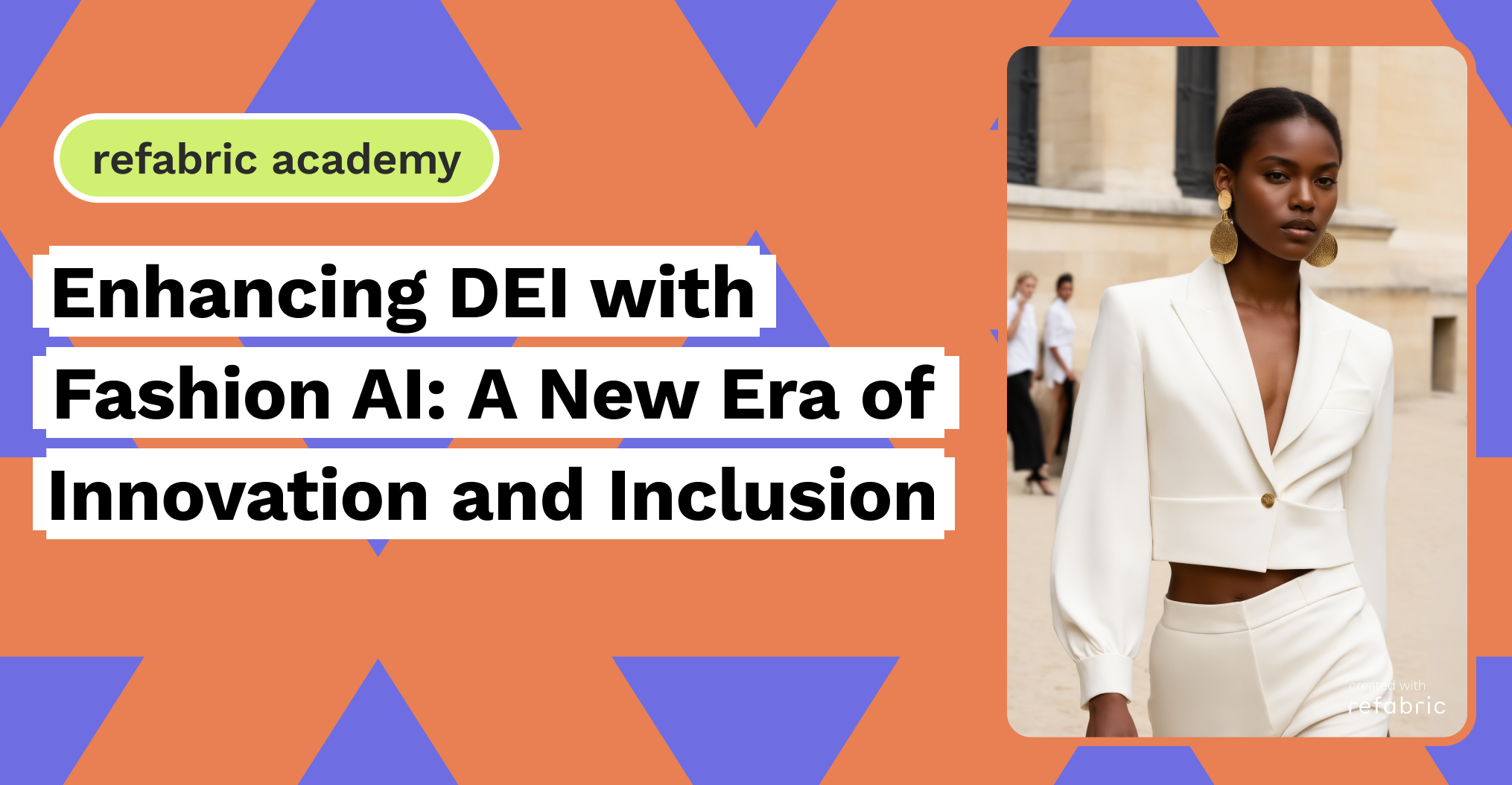In an era defined by rapid innovation, fashion AI has become a powerful ally and agent of change in the fashion industry’s pursuit of diversity, equity, and inclusion (DEI). Generative AI, a specialized subset of artificial intelligence focused on creating new content such as text, images, audio, and video using generative models, stands out as a catalyst for this transformative change. While leading businesses are beginning to recognize the immense value of fashion AI, they are only at the beginning of their journey, with vast opportunities yet to be explored. Clear use cases for technology in fashion have emerged, but rising ethical concerns about AI and algorithmic bias must be acknowledged and addressed for businesses to fully harness the DEI potential of this technology.
Generative AI has already demonstrated its capability to revolutionize content creation across various domains, including fashion. By analyzing vast amounts of data, fashion AI can generate unique designs that cater to diverse tastes and preferences, ensuring that underrepresented groups see themselves reflected in fashion trends. This democratization of design not only fosters inclusivity but also drives innovation by challenging traditional norms and encouraging creativity.
Custom Design with Fashion AI
One of the significant advantages of generative AI in fashion is its ability to personalize and customize designs at scale. This technology can analyze individual preferences, body types, and cultural backgrounds to create bespoke fashion items that resonate with a broader audience. By doing so, fashion brands can cater to the unique needs of their customers, promoting a more inclusive and equitable industry. Moreover, this personalization extends beyond the final product to marketing and advertising campaigns, where AI can help create content that speaks to different demographics and cultural sensibilities.
Why Diverse Training Data Matters for Fashion AI
However, as with any technology, the implementation of generative AI in fashion comes with its set of challenges. One of the primary concerns is the potential for algorithmic bias. AI systems are only as unbiased as the data they are trained on, and if the training data reflects existing biases, the AI will inevitably reproduce and even amplify these biases. This issue is particularly concerning in fashion, where representation matters significantly. For instance, if n fashion AI system is trained primarily on data from a specific demographic, it may produce designs that overlook or misrepresent other groups.
To mitigate these risks, fashion businesses must adopt a proactive approach to ensure their fashion AI systems are fair and unbiased. This involves using diverse and representative training data, regularly auditing fashion AI systems for bias, and implementing robust ethical guidelines for AI development and deployment. Collaboration with experts in DEI and AI ethics can also help businesses navigate these challenges effectively.
The Role of Transparency and Ethics in Fashion AI
Furthermore, transparency and accountability are crucial in building trust with consumers. Fashion brands must be open about their use of fashion AI and the measures they are taking to ensure ethical practices. This transparency not only enhances brand reputation but also empowers consumers to make informed choices about the brands they support.
The potential of generative AI to enhance DEI in the fashion industry is immense, but it requires a concerted effort from businesses to fully realize this potential. By addressing ethical concerns and prioritizing inclusivity in their AI strategies, fashion brands can harness the power of generative AI to create a more diverse, equitable, and inclusive industry.
In conclusion, the integration of generative AI in fashion offers a unique opportunity to drive DEI initiatives forward. While the journey is still in its early stages, the promise of AI to democratize design, personalize fashion, and represent diverse cultures is a compelling vision for the future. As businesses continue to explore and adopt this technology, addressing ethical challenges will be key to unlocking its full potential. The fashion industry stands at the cusp of a new era, where technology and innovation can truly make a difference in promoting diversity, equity, and inclusion.
